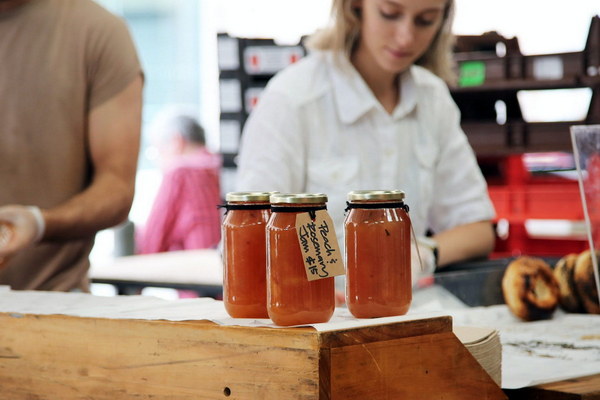Nourishing Teens The Power of Food Therapy for Young Adults
Introduction:

The teenage years are a critical period of growth and development. During this time, adolescents experience rapid physical and mental changes, making it crucial to provide them with proper nutrition. Food therapy, or the use of specific foods to improve health and well-being, can be a powerful tool for nourishing teens. This article explores the benefits of food therapy for young adults and provides practical tips for incorporating healthy eating habits into their daily lives.
I. Benefits of Food Therapy for Teens:
1. Enhanced Physical Growth:
As adolescents grow, their bodies require essential nutrients to support bone and muscle development. Food therapy ensures that they receive the necessary vitamins and minerals, such as calcium, vitamin D, and protein, to fuel their growth.
2. Improved Cognitive Function:
The brain is highly active during the teenage years, and proper nutrition can enhance cognitive function. Foods rich in omega-3 fatty acids, antioxidants, and B vitamins, such as fatty fish, berries, and nuts, can improve concentration, memory, and overall brain health.
3. Emotional Well-being:
Food therapy can also support emotional health by addressing mood disorders and reducing the risk of mental health issues. Foods high in omega-3 fatty acids, such as flaxseeds and chia seeds, have been shown to improve mood and reduce symptoms of depression and anxiety.
4. Better Immune System:
A strong immune system is essential for young adults to combat infections and diseases. Food therapy can bolster the immune system by incorporating foods rich in vitamin C, vitamin D, and zinc, such as oranges, mushrooms, and nuts.
5. Healthy Weight Management:
Adolescents often struggle with weight management, and food therapy can help them develop healthy eating habits. By focusing on whole foods, portion control, and mindful eating, teens can achieve a balanced diet and maintain a healthy weight.
II. Practical Tips for Incorporating Food Therapy into Teens' Diets:
1. Emphasize Whole Foods:
Encourage teens to consume a variety of fruits, vegetables, whole grains, lean proteins, and healthy fats. These nutrient-dense foods will provide the necessary vitamins and minerals for optimal health.
2. Limit Processed Foods:
Reduce the consumption of processed and sugary foods, which can lead to weight gain, inflammation, and poor health. Encourage teens to choose fresh, whole foods over processed alternatives.
3. Increase Omega-3 Intake:
Foods like fatty fish, flaxseeds, and chia seeds are excellent sources of omega-3 fatty acids. Encourage teens to incorporate these foods into their diets to support brain health and reduce the risk of mental health issues.
4. Hydration is Key:
Ensure that teens drink plenty of water throughout the day. Adequate hydration is essential for maintaining energy levels, cognitive function, and overall health.
5. Mindful Eating:
Teach teens the importance of mindful eating, which involves paying attention to their food and the eating experience. This can help them develop a healthier relationship with food and improve their eating habits.
Conclusion:
Food therapy can play a significant role in nourishing teens and promoting their overall health and well-being. By incorporating these practical tips and focusing on whole, nutrient-dense foods, parents, educators, and caregivers can help young adults develop healthy eating habits that will benefit them throughout their lives.









